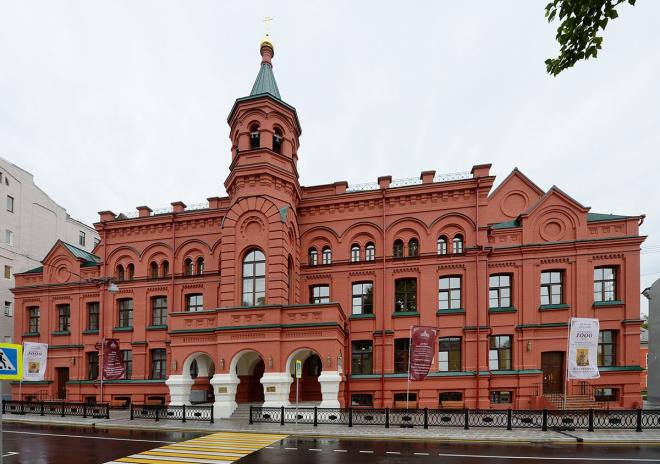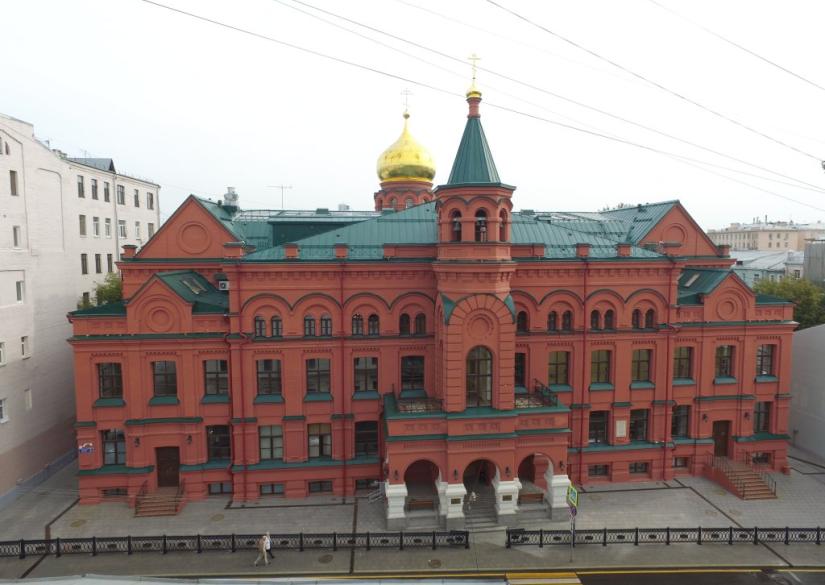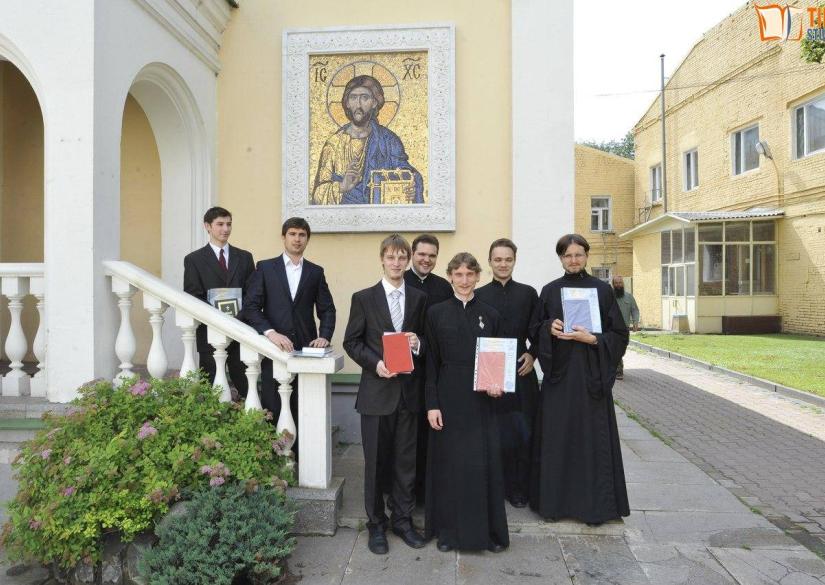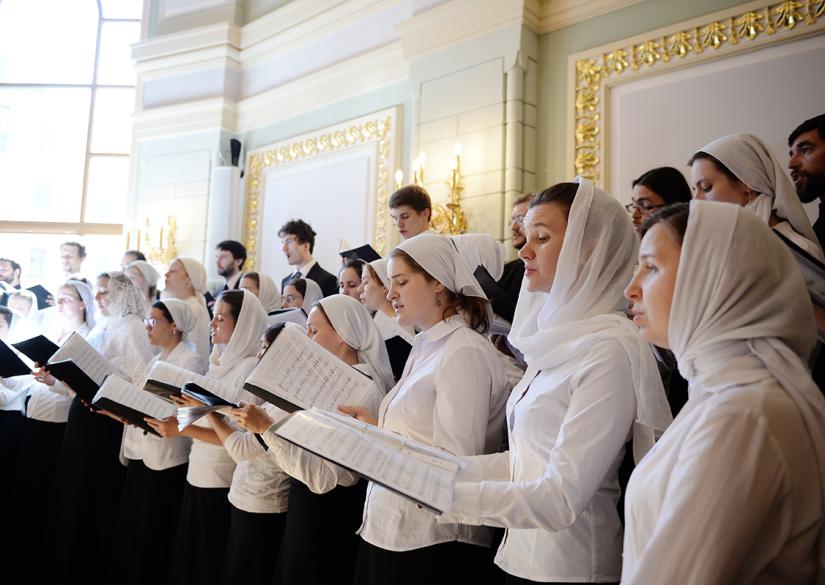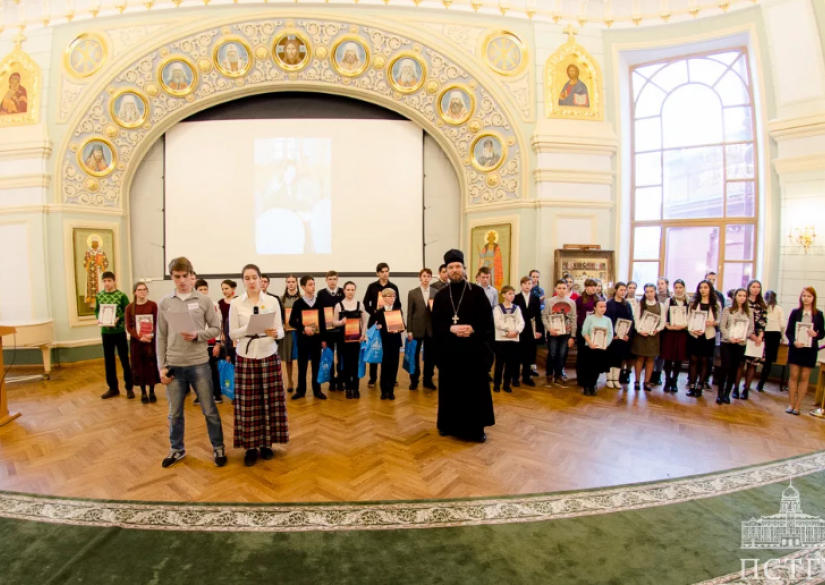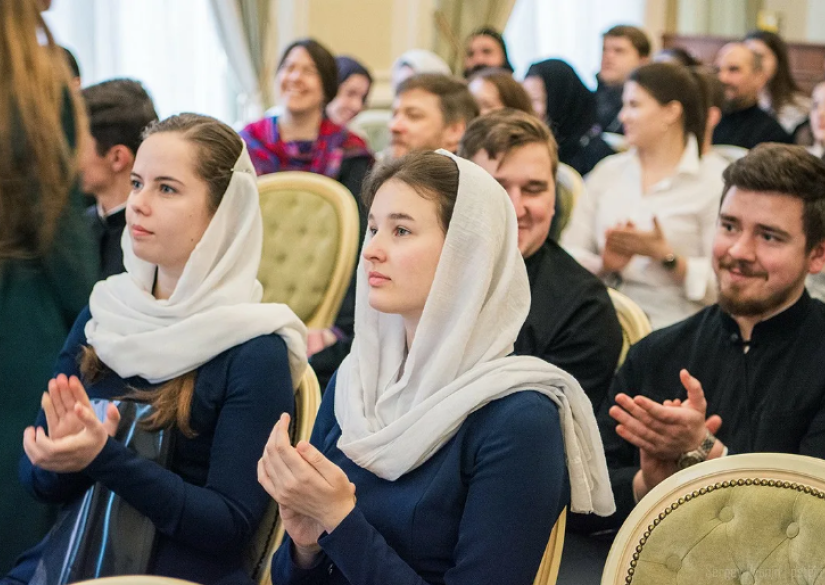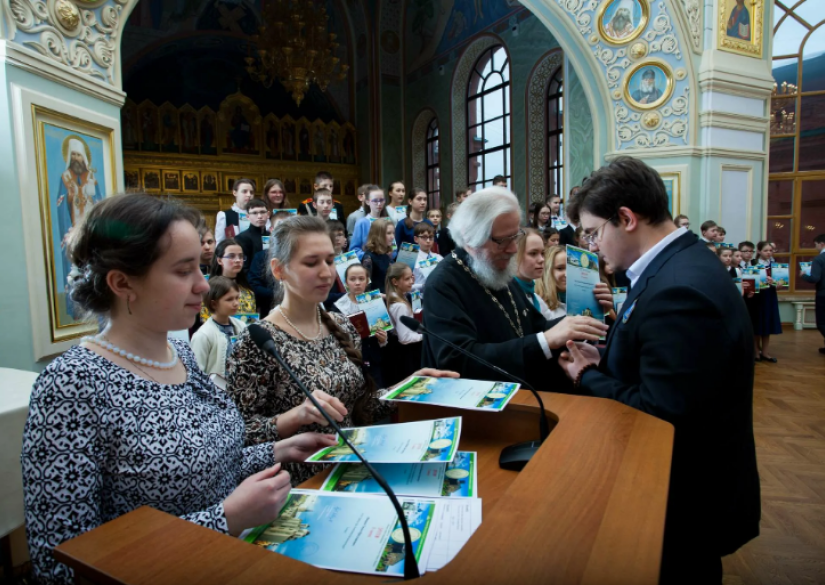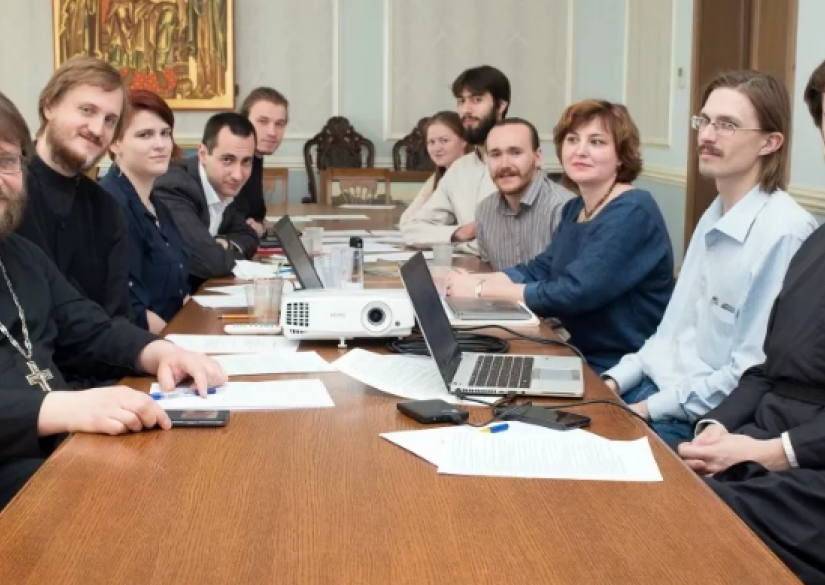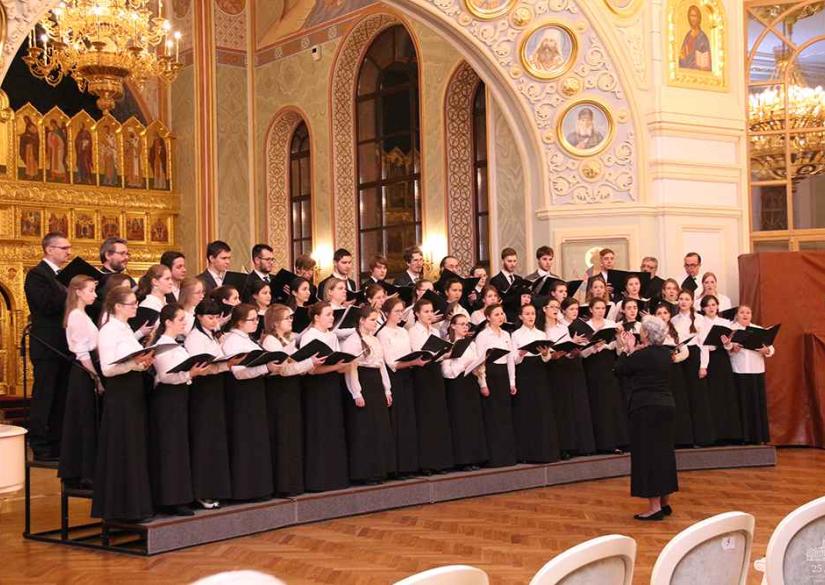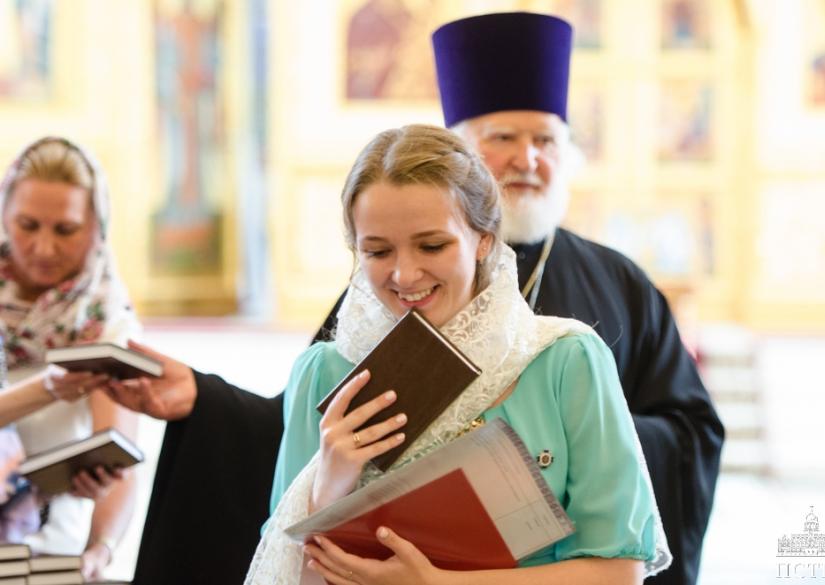St. Tikhon's Orthodox University for the Humanities
Programs and prices, tuition fees in St. Tikhon's Orthodox University for the Humanities
Secondary vocational education
- Age – from 15 years
- The training period is 4 years.
Specialty:
- Choral conducting.
Bachelor
- Age – from 17 years
- The training period is 4 years.
Specialty:
- Theology;
- Religious Studies;
- Philology;
- Social work;
- History;
- Teacher education;
- Conducting;
- History of Art;
- Decorative and applied arts and folk crafts;
- Mathematical support and administration of information systems;
- Economics.
Master
- Age – from 21 years
- The training period is 2 years.
Specialty:
- Theology;
- Religious Studies;
- Philology;
- History;
- Economy;
- Art History.
Training of specialists
- Age – from 17 years
- The training period is 5-6 years.
Specialty:
- Painting;
- Artistic direction of the opera and symphony orchestra and academic choir.
Postgraduate study
- Age – from 21 years
- The training period is 3 years.
Specialty:
- National history;
- Philosophy of Religion and Religious Studies;
- General pedagogy, history of pedagogy and education;
- Russian literature and literatures of the peoples of the Russian Federation;
- Russian. Languages of the peoples of the Russian Federation;
- Classical, Byzantine and Modern Greek Philology;
- Musical art;
- Theoretical theology;
- Historical theology.
Description of St. Tikhon's Orthodox University for the Humanities
- Location: Moscow, Russia;
- Age of students: 16+;
- Type: mixed;
- Language of instruction: Russian.
The University is a private educational organization of higher education. The founder of the university is the Russian Orthodox Church represented by the Patriarch of Moscow and All Russia and the Holy Synod of the Russian Orthodox Church.
The foundation of PSTGU was laid in 1992.
The University educates scientific, pedagogical and other personnel for the Russian Orthodox Church and other Local Orthodox Churches.
Educational process
The organization of the educational process of PSTGU is regulated by the working curriculum, the annual calendar schedule of the educational process and the schedules of classes.
Faculties and colleges
Currently, PSTGU has 6 faculties and 2 institutes:
- Faculty of Theology
- Faculty of Church Arts
- Faculty of Church Singing
- Faculty of History and Philology
- Faculty of Informatics and Applied Mathematics
- Faculty of Additional Education
- Institute of Distance Education
- Theological Institute.
Scientific achievements
Research work at PSTGU is carried out at the departments and in scientific structures - laboratories, departments, research centers (SIC). The university has scientific student societies, since 2013 an annual student conference has been held.
Since 1997, the periodical "Bogoslovsky Collection" has been published, renamed in 2003 in the "Bulletin of PSTGU" in 5 series.
Things to know about
PSTGU interacts with 30 foreign universities and foundations. About 300 undergraduate and graduate students participated in exchange programs with universities in Berlin, Milan, Nottingham, etc.
The revival of the Diocesan House was completed by the 1000th anniversary of the repose of St. Equal-to-the-Apostles Kn. Vladimir, when on July 26, 2015, the building and its house churches were consecrated by His Holiness Patriarch Kirill of Moscow and All Russia, and on July 27 of the same year, the President of the Russian Federation V.V. Putin congratulated him on the day of the Angel.
Accommodation, meals, prices
Accommodation of nonresident students of the university is carried out on the closed protected territory of the Student Campus of PSTGU at the address: Moscow, Ilovayskaya Street, 9, bld.1, which is a corridor-type dormitory.
The accommodation of boys and girls is strictly separate. The main fund is rooms for two or three students, having a standard set of furniture. On each floor there are kitchens and bathrooms equipped with everything necessary, as well as separate rooms for storing things, drying and ironing. In the basement there are showers, common washing machines.
In addition, on the territory of the Campus there are opportunities for cultural and sports development: a gym, a student lounge with a piano, a university library. On weekdays there is a refectory (lunches are paid).
The center of students' life is worship in the church-chapel in the name of St. Tikhon, Patriarch of Moscow and All Russia.
Activities St. Tikhon's Orthodox University for the Humanities
PSTGU pays special attention to the spiritual, moral and patriotic education of students of the University in the spirit of the Orthodox tradition and supports the participation of students in the volunteer and volunteer movement.
The University creates conditions for the participation of students in divine services conducted by clergymen and canonical units of the Russian Orthodox Church, as well as the passage of obediences by students in accordance with the tradition of theological schools of the Russian Orthodox Church.
Facilities and equipment at St. Tikhon's Orthodox University for the Humanities
The main ground (moscow Diocesan House) is located in the center of Moscow. The complex has good transport accessibility and is a 15-minute walk from the metro station "Tsvetnoy Boulevard".
- OCHU PSTGU has 34 equipped multimedia classrooms.
- To study foreign languages, the university is equipped with 3 language laboratories.
- There are 4 computer classes in the three territories of PSTGU.
- On the main educational site of the university in Likhovy Lane there is a scientific and theological library, including a foreign one. Library collections are available at other sites as well.
The complex of the university includes a hostel, student canteens, three medical offices, sports and gyms, treadmills, including those equipped with elements of an obstacle course, a basketball court and a shooting range.
Admission dates and extra charges
The educational process at the university is carried out according to the semester system. The month of completion of the intermediate certification of the autumn semester is December, the month of the end of the spring semester is July.
Additional costs may include:
- accommodation in a dormitory (for non-residents),
- transportation costs,
- nutrition
- leisure, etc.
Enrolment process
The following documents are submitted to the admissions committee:
- Application in Russian language;
- Identity and citizenship document;
- SNILS (if any);
- A document of the established sample on the level of education required for admission to study under the relevant program;
- Documents confirming the individual achievements of the applicant (at the discretion of the applicant);
- 2 photos measuring 3x4 cm (for persons entering on the basis of the results of entrance examinations conducted by the University independently);
- 4 identical photographs measuring 3x4 cm (for persons entering secondary vocational education programs);
- Consent to the processing of personal data.
Persons with disabilities, disabled children, disabled persons submit a document confirming their disabilities or disabilities.
Persons who have special rights for admission to studies and wish to use them submit documents confirming the existence of special rights.
When enrolling in the areas of 44.03.01 "Pedagogical Education", 44.04.01 "Pedagogical Education", applicants provide information on the passage of a preliminary medical examination.
Acceptance of documents begins on the 20th of June and ends depending on the chosen form of education (full-time, part-time, part-time) and the need to pass internal entrance tests.
Documents can be submitted in one of the following ways:
- remotely through the Personal Account "Applicant of "PSTGU Online" of the PSTGU website;
- directly personally to the Admission Committee at the address – Moscow, Likhov lane, 6, p. 1;
- a postal item with a notification and an inventory of the attachment;
- through the Distance Education System (in case of admission to education using distance educational technologies).
Acceptance of documents using the service "Admission to the university online" through EPGU is not conducted.
Enrolment statistics
This year, PSTGU opened 539 full-time places and 218 places for part-time and part-time education.
Perspectives
The university has more than 1,000 graduates in holy orders. PSTGU is a unique center for education high-level professionals in the field of church fine arts and liturgical singing.
Entry requirements, how to apply, what is required to enrol
- Completed secondary general education (11 grades), secondary vocational or higher education;
- Successful completion of entrance examinations or testing (including for foreign citizens);
- Results of the Unified State Exam;
- Religion - Orthodox Christianity.
The minimum number of points in general education subjects of the Unified State Exam and internal entrance tests depends on the chosen educational program.
Scholarships St. Tikhon's Orthodox University for the Humanities
- Academic and social state scholarships are paid at the University.
- The university can appoint and pay academic and social scholarships to PSTGU.
- The University establishes material support in the form of free / preferential meals and one-time material assistance in a difficult life situation.
Institution on the map
Residence permits, citizenship and other services
- Guardianship services during the studies
- Student supervision
Review about St. Tikhon's Orthodox University for the Humanities
Recommendations on when to apply
| Language courses, schools and children's language camps | Primary and secondary education - private schools | Preparation programmes for entering universities - higher education | Higher education (after completing accredited programs A-level, IB, High School) - Bachelor, Master, MBA |
| - we recommend to apply 6-9 months before the start of the course (some camps and schools offer discounts for early booking or for lengthy study programs) - there are some very popular and high demand children's camps, where the applications need to be submitted 1 year in advance (in particular Switzerland , Great Britain , USA , Canada , Austria) | - we recommend to apply one year before the start of the training program, - some schools have a specific time frame (September-November - please specify an individual school) - some schools require tests in several stages (UKISET, internal tests of the school: English, mathematics, logics, subjects, interview, some require a personal visit) | - we recommend to apply one year before the start of the program, - for Foundation and Pathway programs, IELTS and TOEFL certificates are usually required, respectively | - recommended submission one year before the start of the program, - the deadline normally closes in January, for TOP HEIs and, as a rule, in March in other universities - for a bachelor, a Foundation or Pathway preparatory program a completed A-level, IB, High School + IELTS / TOEFL are required - for Masters you need a graduated higher education, in some cases you need a pre-Masters program - MBA requires completed higher education, work experience preferably at least 2-3 years, etc. |


